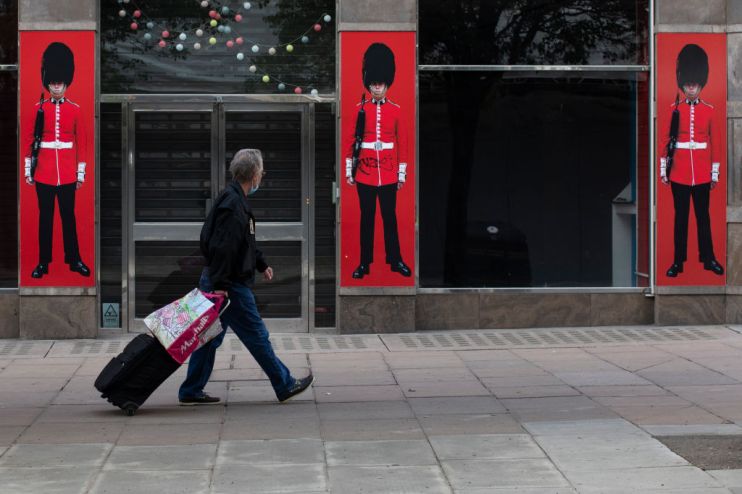Extend job retention scheme to stop unemployment spike, says think tank

The UK’s coronavirus job retention scheme must be extended for three months in order to prevent joblessness from spiking, an employment think tank has said.
Under the job retention scheme (JRS) the government pays 80 per cent of “furloughed” workers’ wages, up to a limit of £2,500 a month.
In a report out today, UK think tank the Learning and Work Institute (LWI) said it had been very successful in limiting job losses. Reports estimate that around 6m people are now furloughed via the JRS.
However, the LWI said that the scheme needs to be extended past the current June date for at least another three months.
Chancellor Rishi Sunak on Tuesday signalled that this is a possibility. He said that “there will be no cliff edge” to the government’s job retention scheme.
The LWI’s report came after the Bank of England on Thursday said the UK economy is likely to crash by 14 per cent this year.
The Bank said there will be a sharp rebound, however, with growth of 15 per cent in 2021. The Bank’s predictions were based on an easing of coronavirus support measures from June.
The Learning and Work Institute said that although some coronavirus lockdown measures may soon be eased, social distancing is likely to remain in place. This will damage businesses, the think tank said.
“In this context, a rapid withdrawal of support risks leading to a ‘second wave’ of unemployment if support is withdrawn rapidly,” the think tank said.
Government should adopt ‘short-time working’
The LWI’s report called on the government to make a number of proposals that it called on chancellor Rishi Sunak to adopt. They included:
- Extending the job retention scheme until the end of September
- Reforming the JRS to allow for ‘short-time working’ so employers can phase staff back in
- Working with businesses and unions on a gradual withdrawal of the JRS from September on a sector-by-sector basis
- Making support beyond September conditional on commitments to minimum standards on pay and job quality or on the state taking an equity share in order to recoup some of the cost.
Short-time working is used in Germany, where the government subsidises wages for workers that are not needed for their usual hours.
The JRS is extremely costly at roughly £14bn a month. Some have argued it cannot continue much longer, but the LWI said its economic effects are worth the high price.
LWI chief executive Stephen Evans said: “While it can’t continue indefinitely, a sudden withdrawal in support risks leading to a second wave of unemployment.”
“The post-crisis economy will be very different, and we need to recognise that hundreds of thousands of furloughed workers may never be able to return to their jobs,” he added.
“We need to be ready to support these workers through investment in skills, a jobs guarantee and a more generous safety net.”